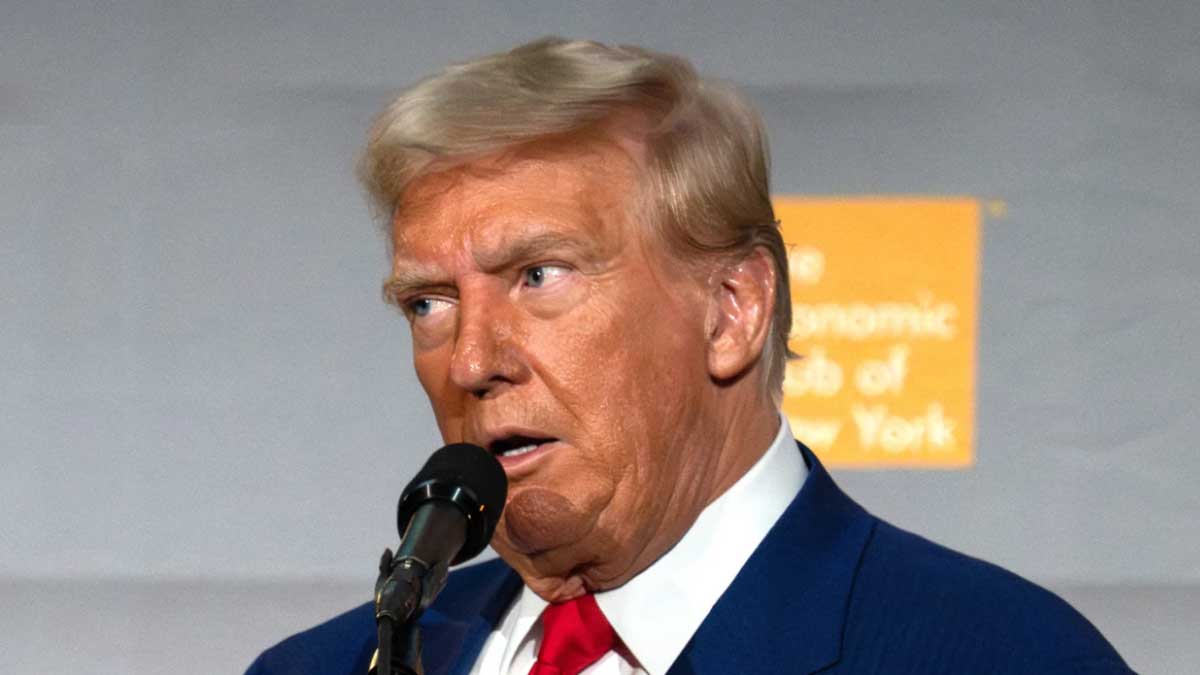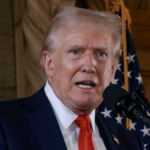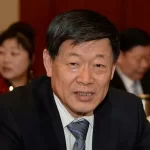- Home
- Billionaires
- Investing Newsletters
- 193CC 1000
- Article Layout 2
- Article Layout 3
- Article Layout 4
- Article Layout 5
- Article Layout 6
- Article Layout 7
- Article Layout 8
- Article Layout 9
- Article Layout 10
- Article Layout 11
- Article Layout 12
- Article Layout 13
- Article Layout 14
- Article Sidebar
- Post Format
- pages
- Archive Layouts
- Post Gallery
- Post Video Background
- Post Review
- Sponsored Post
- Leadership
- Business
- Money
- Small Business
- Innovation
- Shop
Recent Posts
Trump Proposes U.S. Sovereign Wealth Fund Funded by Tariffs

Former President Donald Trump proposed the creation of a sovereign wealth fund for the U.S. during a speech at The Economic Club of New York on Thursday. This proposed fund would be modeled after those used by countries like Norway, China, and South Korea. Trump suggested that if he wins the presidential election, the fund could be partially financed through tariffs. He argued that the U.S. should have such a fund to invest in significant national projects that would benefit all Americans.
Trump emphasized that the fund would be supported by “tremendous amounts of money” generated from tariffs and other strategic revenue sources. Sovereign wealth funds, state-owned investment vehicles, can invest in various assets such as stocks, real estate, bonds, and hedge funds. These funds help build substantial capital pools that can protect governments and their citizens from economic pressures.
Typically, sovereign wealth funds are financed by budget surpluses from sources like trade surpluses, revenues from natural resources, foreign currency operations, and government transfer payments. However, the U.S. has operated at a federal deficit since 2001, the last year it recorded a budget surplus of $128 billion, according to the U.S. Treasury. The Federal Reserve and U.S. Treasury have traditionally managed long-term investments and economic stability in the U.S., reducing the need for a sovereign wealth fund.
At the state level, the U.S. does have experience with sovereign wealth funds. States such as Texas, New Mexico, and Alaska manage substantial funds focused on real estate, education, and oil drilling. This reflects a localized approach to investment strategies similar to those of sovereign wealth funds.
Saudi Arabia’s Public Investment Fund, a major sovereign wealth fund, has invested over $2 billion in LIV Golf, a competitor to the PGA Tour, and holds $925 billion in assets. LIV Golf even hosted an event at Trump National Golf Club Bedminster in 2022, highlighting the global interconnectedness of investment and local business interests.
Trump’s proposal may face challenges, particularly concerning the use of tariff revenue. During his previous administration, a significant portion of tariff revenues was allocated to compensating American farmers affected by retaliatory tariffs from China—92% of tariff funds went to this sector. If Trump is re-elected and continues this practice, tariff revenue might not be as substantial as needed for the sovereign wealth fund.
Moreover, the relevance of tariffs in U.S. revenue generation has diminished. The White House reports that tariffs contributed only 2% of the $4.4 trillion in federal tax revenue last year, while individual and non-wage income taxes accounted for over three-quarters of federal revenue. This decline could impact the feasibility of funding Trump’s proposed wealth fund through tariffs.
Hedge fund billionaire John Paulson suggested that the U.S. should aim to create a sovereign wealth fund that surpasses Norway’s, the largest in the world with $1.7 trillion in assets. Paulson proposed addressing potential budget shortfalls through tariffs and reducing excessive spending.
Trump’s 2024 campaign includes proposals to cut corporate tax rates from 21% to 15%, eliminate income taxes on Social Security benefits, remove taxes on tips, and impose a 10% tariff on most imports, with a 60% tariff on Chinese goods. His previous tariffs led to reduced imports and increased domestic production in some industries. However, economists warn that heavy reliance on tariffs could negatively impact consumers. Trump’s tariffs from 2018 and 2019 resulted in nearly $80 billion in new taxes on Americans, with average annual tax increases of $625 per household, along with reduced incomes and consumer choice.
Trump’s proposal for a U.S. sovereign wealth fund represents a significant shift in American economic strategy. By leveraging tariffs and other revenue sources, he aims to create a fund that could potentially shield the nation from economic volatility and support national development. However, the practicalities and impacts of such a fund will depend on various factors, including tariff revenue stability and broader tax policy implications.
Recent Posts
Categories
- 193cc Digital Assets2
- 5G1
- Aerospace & Defense46
- AI37
- Arts3
- Banking & Insurance11
- Big Data3
- Billionaires494
- Boats & Planes1
- Business328
- Careers13
- Cars & Bikes76
- CEO Network1
- CFO Network17
- CHRO Network1
- CIO Network1
- Cloud10
- CMO Network18
- Commercial Real Estate7
- Consultant1
- Consumer Tech180
- CxO1
- Cybersecurity68
- Dining1
- Diversity, Equity & Inclusion4
- Education7
- Energy8
- Enterprise Tech29
- Events11
- Fintech1
- Food & Drink2
- Franchises1
- Freelance1
- Future Of Work2
- Games141
- GIG1
- Healthcare78
- Hollywood & Entertainment186
- Houses1
- Innovation42
- Investing2
- Investing Newsletters4
- Leadership65
- Lifestyle11
- Manufacturing1
- Markets20
- Media193
- Mobile phone1
- Money13
- Personal Finance2
- Policy567
- Real Estate1
- Research6
- Retail1
- Retirement1
- Small Business1
- SportsMoney33
- Style & Beauty1
- Success Income1
- Taxes2
- Travel10
- Uncategorized8
- Vices1
- Watches & Jewelry2
- world's billionaires463
Related Articles
Trump Moves $4B Stake in Truth Social Parent, Stock Drops 6%
Donald Trump recently transferred his 57% stake in Trump Media & Technology...
By 193cc Agency CouncilDecember 20, 2024House Rejects Trump-Backed Funding Bill, Shutdown Looms
The U.S. House of Representatives rejected a new government funding bill on...
By 193cc Agency CouncilDecember 20, 2024Trump Named Time’s Person of the Year for Second Time
On Thursday, Time magazine honored Donald Trump as its “Person of the...
By 193cc Agency CouncilDecember 12, 2024Meta Donates $1 Million to Trump’s Inaugural Fund
Meta, the parent company of Facebook and Instagram, has confirmed a $1...
By 193cc Agency CouncilDecember 12, 2024















Leave a comment